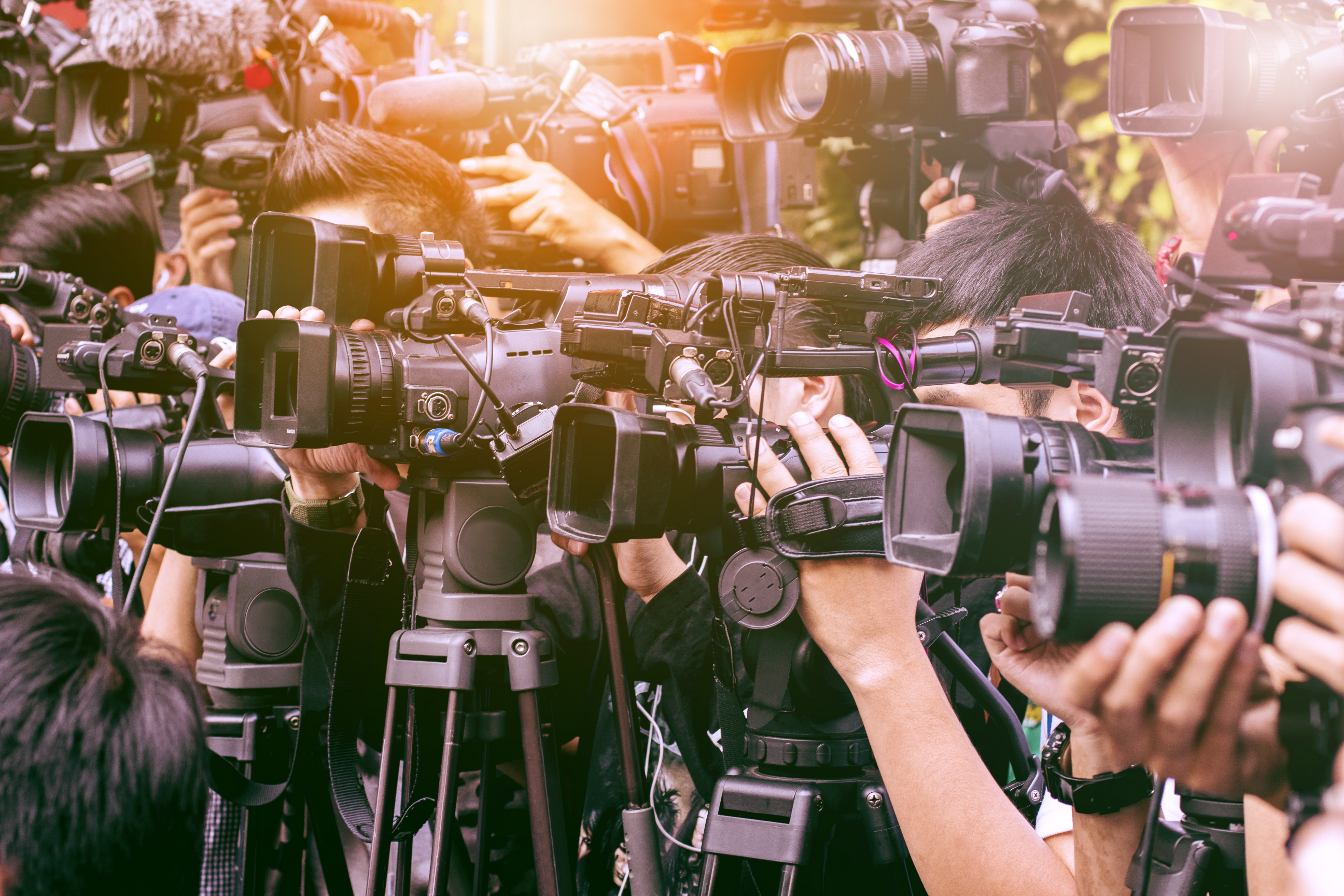Our weekly round-up of public service media related stories and headlines from around the world.
Click on the drop-down menus below to reveal the latest regional stories.
EGYPT: Egyptian activists and media targeted by phishing attacks – Amnesty
Reuters: Egyptian activists and journalists have been targeted by phishing attacks coinciding with political events in an intensifying crackdown on dissent since the start of the year, Amnesty International said on Wednesday.
KENYA & MOZAMBIQUE: The impact of militant insurgencies on media freedom, Africans nominated for free expression award, fake news and elections
IFEX: Reporting militant insurgencies in Mozambique’s Cabo Delgado province becomes risky for journalists. The Kenyan LGBTQI+ movement disappointed with postponement of petition to have sections of penal code repealed.
NIGERIA: Nigerian nonprofit is addressing gender imbalance in newsrooms
IJNet: An investigative journalism nonprofit organization in Nigeria that seeks to expose corruption and human rights abuses has spearheaded an effort to address the prominent gender imbalance in the country’s newsrooms.
SOUTH AFRICA: Fighting fake news and disinformation ahead of the election (Opinion)
News24: One of the core challenges surrounding disinformation is that it is increasingly difficult to distinguish between what is credible and what is not, writes William Bird.
SOUTH AFRICA: Parties lament ‘weak’ SABC board candidates
City Press: Members of Parliament’s portfolio committee on communications are disappointed with the calibre of candidates who were interviewed for the SABC board this week.
SOUTH AFRICA: SABC Board interviews (Watch)
SABC News: On Tuesday, 05 March 2019, Parliament’s Communications Committee begun interviews into prospective candidates to serve on the South African Broadcasting Corporation (SABC) Board.
SWAZILAND: First Community Radio Station Registered in Swaziland After 19 Years Trying
Via All Africa: Lubombo has become the first community radio station to be registered in Swaziland / eSwatini after 19 years of trying. It still has to apply for and be granted a licence before it can start broadcasting.
TANZANIA: Tanzania Authorities Cite Bias in Banning of Major English Newspaper
HRW: Suspension of The Citizen Latest in Series of Attacks on Freedom of Expression.
MFWA: The International Women’s Day is the time to celebrate the crucial role women play in society and to honour women who continuously play extraordinary roles in their communities, workspaces and countries.
REGIONAL: MISA Zimbabwe concerned by media shutdowns on the continent
MISA: On 27 February 2019, Tanzanian authorities imposed a seven-day ban on The Citizen an independent newspaper publication. The ban extends to the publication’s online platforms as well.
GENERAL: The colonial-era laws that still govern African journalism
Aljazeera: Much of that colonial legislation is still in place today, and there is now a growing list of journalists in sub-Saharan Africa falling afoul of those laws.
BANGLADESH: Bangladesh’s Media Under Siege
The Diplomat: The Digital Security Act 2018 was just the latest blow.
HONG KONG: Chris Yeung: “Diversity will be lacking if there are few women in senior, decision-making positions”
IFJ: Chris Yeung is the president of the Hong Kong Journalists Association and chief writer at Citizen News. We talk with him about gender equality in media and the situation of women in Hong Kong.
HONG KONG: Pro-Beijing lawmaker Regina Ip questions necessity of public broadcaster RTHK’s news dept.
HKFP: At the panel, Ip said she believed RTHK, as a government department, should be doing what the private market and companies cannot do.
INDIA: Prasar Bharati adds 11 state channels to DD Free Dish
Rapid TV Indian public broadcaster Prasar Bharati has expanded the reach of its regional Doordarshan network by adding 11 state channels to its free-to-air satellite platform DD Free Dish.
INDIA & PAKISTAN: India and Pakistan: How the war was fought in TV studios
BBC: Television stations in both countries were accused of sensationalism and partiality. But how far did they take it? The BBC’s Rajini Vaidyanathan in Delhi and Secunder Kermani in Islamabad take a look.
JAPAN: NHK provides key disaster info
The Japan Times: On its English TV news channel, NHK World offers news on disasters, as well as images of breaking news broadcasts from domestic channels by adding simultaneous English interpretation when necessary.
MALAYSIA: Journalists must be consulted on press council development
IFJ: Several journalist groups in Malaysia have come together to urge thorough consultation on the establishment of a press council in Malaysia.
MALAYSIA: Malaysian jailed for 10 years for insulting Islam on social media
Reuters: A Malaysian was sentenced to more than 10 years’ jail and three others were charged over insults against Islam and the Prophet Muhammad on social media, police said on Saturday.
MYANMAR: In Myanmar, ‘pervasive hate speech and shrinking freedom
Aljazeera: UN expert on Myanmar decries ‘shrinking democratic space’ in new report, urges ‘concrete action’ from global community.
THAILAND: ‘A real source of hope’: social media opens Thailand’s junta to criticism
The Guardian: Social platforms wield increasing power in Thai politics, where traditional media remain under the iron grip of the military.
VIETNAM: RSF decries increase in Vietnam’s mistreatment of imprisoned journalists
RSF
AUSTRALIA: DAB is part of our digital strategy: ABC Radio at #ABUdbs2019
Radio Info: Cath Dwyer, the Manager of RN, Radio and Radio Australia has told the digital radio workshop at DBS Kuala Lumpur that Australia’s national broadcaster is committed to DAB+ transmission as part of its multiplatform strategy.
KIRIBATI: Kiribati TV providing culturally sensitive news
RNZ: A recently launched television service in Kiribati says its news will remain sensitive to the culture and traditions of the islands.
NEW ZEALAND: Journalism courtesy of (foreign) taxpayers
RNZ: Seven senior Kiwi journalists spent a week in Hawaii late last year and produced just one story between them. It didn’t cost their organisations a cent – the tab was picked by the US State Department.
NEW ZEALAND: Michael Jackson’s music dropped from major NZ radio stations
RNZ: Michael Jackson’s music will be playing less frequently on New Zealand airwaves in the wake of new child sex abuse allegations.
GENERAL: Journalism education at USP – a 30-year struggle for free press
Asia Pacific Report: The University of the South Pacific’s recent 50th anniversary marked 30 years of existence for its regional journalism programme. In an eventful journey, the programme weathered military coups, overcame financial hardships and shrugged off academic snobbery to get this far.
BOSNIA & HERZEGOVINA: Journalists Are Living in Fear in Republika Srpska
Foreign Policy: Bosnia has a thriving media sector, but those who refuse to become mouthpieces for the government increasingly find themselves in exile or under police protection.
FINLAND: Finland passes enhanced surveillance bills without a vote
Yle: The laws will give the Security Intelligence Service and the Finnish Defence Forces new, expanded eavesdropping powers.
FRANCE: Public service media: Franck Riester to present “360 degree reform” by summer (French)
Puremédias: As expected, this reform will be articulated around three main axes: The future of public media, the regulation of the sector and the financing of French content.
FRANCE: TV fee does not increase in 2019 (French)
Le Figaro: In 2019, the amount of the contribution to the public media sector is € 139 in mainland France and € 89 in overseas territories. For the first time in 10 years, these amounts are identical to last year.
GERMANY: How Extremists Aim To Set The Media Agenda – Case Study: Germany’s Identitarian Movement (Opinion)
EJO: The established media still – for now – largely control the news agenda. They play the role of gatekeepers, determining what is discussed in the public arena. But the Internet is increasingly giving those who might once have been denied access to the media the chance to make their voices heard.
HUNGARY: In Hungary, media freedom defenders turn to creative legal fightback
IPI: NGO, MEP launch legal challenge after creation of pro-government media conglomerate
IRELAND: Climate change quotas proposed for RTÉ output (Paywall)
The Times: RTÉ and other broadcasters should be required to meet climate change content quotas, a new climate action plan has recommended.
MALTA: New threat against The Shift News in Malta highlights growing international abuse of defamation laws
RSF: A new threat of possible legal action against Malta-based investigative outlet The Shift News has highlighted the growing international abuse of defamation laws to silence public interest investigative reporting.
RUSSIA: Russia: Duma makes “disrespecting” the state punishable by imprisonment
RSF: The new laws will serve as additional weapons for use by Russia’s prosecutors and judges – whose lack of independence is notorious – in silencing criticism.
RUSSIA: Three years after attack on journalists in Ingushetia, investigation is stalled
RSF: No suspect has yet been identified although it was one of the most shocking attacks on journalists in recent years in Russia.
SERBIA: Protesters surround state TV building
Deutsche Welle: Anti-government protests in Serbia have entered a fourth month, as thousands gathered in Belgrade. Demonstrators have called for an end on what they call President Aleksandar Vucic’s stranglehold of the media.`
SPAIN: Compromís proposes to shield Valencian public radio and television in the Estatut (Spanish)
La Vanguardia: The Ombudsman of Compromís in Les Corts, Fran Ferri, has ensured that one of the objectives for the next term will be the shielding of Valencian public radio and television in the Statute of Autonomy so that “no matter who will govern, the independence of public media will be guaranteed and we can not live again the shame of a unilateral closure as it happened with the PP in 2013.”
SPAIN: Seizure of journalists’ equipment by police raises concerns for Spanish press freedom
Index on Censorship: Journalists see the judicial and police action as a violation of Spain’s Constitution.
SPAIN: The renewal of RTVE, up in the air (Spanish)
Diario Sur: The election process and the aspiring candidates’ appeals complicate the public contest to renew the management of the public broadcasters.
UK: BBC investigated over pay discrimination
BBC News: The BBC is to be investigated over suspected past pay discrimination against female employees.
UK: BBC must prepare for a digital future, says director general
The Guardian: The BBC must plan for a future where a large proportion of its audience never watch its traditional television channels, its director general will say, as he calls for the iPlayer catch-up service to become a rival to Netflix.
UK: Culture secretary: UK broadcasters need ‘level playing field’ with SVOD outfits
Digital TV Europe: Greater regulatory oversight of subscription video-on-demand and online content services may be necessary in order to create a “level playing field” with domestic broadcasters and media companies, according to digital, culture, media and sport secretary of state Jeremy Wright.
UK: Local communities are being silenced. We’re in the age of the ‘Unplace’ (Opinion)
The Guardian: Towns and cities across the country are losing their radio shows. Who will tell their stories now?
GENERAL: EU protects whistleblowers with new directive
Deutsche Welle: EU negotiators have approved a directive protecting whistleblowers who report issues such as fraud and tax evasion by authorities or corporations.
GENERAL: Five recommendations (and many examples) for how to nurture engagement in European newsrooms
Nieman Lab: The Engaged Journalism Accelerator, boosting a dozen European media organizations’ engagement strategies, is working to change that continent’s reporting culture and compiled some recommendations for (and solid examples of) news outlets putting engagement at their core.
COLOMBIA: Government appoints Juan Ramón Samper as the new manager of RTCV (Spanish)
El Universal: The National Government on Monday appointed Juan Ramón Samper as the new manager of the Public Media System (RTVC), following the resignation that Juan Pablo Bieri presented to the organisation’s management on January 24, after an apparent act of censorship.
HONDURAS: Investigative journalism in Honduras is a need that must be strengthened (Spanish)
Conexihon: Twenty-six journalists and social communicators from five departments of the national territory met in Tegucigalpa to discuss and learn more about investigative journalism and the need to denounce corruption.
JAMAICA: Social Media Clampdown – Broadcasting Commission Wants To Police Online Sites
The Gleaner: The Broadcasting Commission has urged the Holness administration to increase its oversight responsibility beyond free-to-air electronic media to policing social media platforms such as Facebook and YouTube.
VENEZUELA: News sites in Venezuela report attacks on their servers and blocking of Twitter and SoundCloud
Knight Center: The blocking of news sites reporting on the ongoing social and political crisis in Venezuela continued as opposition leader Juan Guaidó returned to the country after a 10-day tour of the region seeking support to overthrow the government of Nicolás Maduro.
IRAQ: Freedom of expression is under threat in Iraq, again
Aljazeera: A draft law could see people accused of ‘damaging’ the reputation of the country jailed for life.
ISRAEL: The Media Won the Netanyahu Cases (Opinion)
Haaretz: It only takes a small number of brave reporters and editors to change the tide, now matter how strong the onslaught against them.
LEBANON: Military Tribunal Sentences Journalist for Criticizing Lebanese Security Agency
HRW: Sentence Latest in Crackdown on Free Speech in Lebanon.
TURKEY: Turkey needs to respect foreign media outlets’ independence
ECPMF: Pressure on international media in Turkey is increasing. German journalists were expelled from the country as their press accreditations were not renewed.
CANADA: Deadline approaching for CBC New Indigenous Voices media training course
CBC/Radio-Canada: Course aimed at helping young Indigenous media makers develop writing, producing and directing skills.
US: Enemy of the people or critical public ally? The state the media in the US
Deutsche Welle: Once a bulwark of press freedom, the US is struggling with its own media landscape as local papers are bought and closed, technology is used to limit freedom of expression and scores of journalists lose their jobs.
US: Green New Deal drives sustained, but shallow, climate coverage
CJR: Coverage of climate change is up —by one measure, at least.
US: How broadcast TV networks covered climate change in 2018 (Research)
Media Matters for America: For this study, Media Matters examined 2018 news coverage of climate change on broadcast TV networks, counting and analyzing segments devoted to climate change and segments in which an employee of the network incorporated climate change.
US: ‘PBS NewsHour’ is expanding with its first West Coast bureau
Los Angeles Times: “PBS NewsHour,” public television’s nightly national newscast, is adding a full-time West Coast bureau aimed at providing more timely coverage for viewers in the region.
US: Public radio fans in South Texas brace for sale of area’s sole NPR stations (Paywall)
Current: The proposed sale of two FM stations in Texas’ Rio Grande Valley would leave the area without public radio, a threat that has spurred residents to explore starting a new NPR outlet.
NiemanLab: Framing public media as a partisan issue encourages people to think of it through a political lens instead of as users and consumers.
US: US border agency cancels meeting with press freedom groups
CPJ
RSF: The United States government created a secret database on journalists, activists and others that they believe should be stopped for questioning when crossing border checkpoints in the San Diego area, according to leaked documents news channel NBC 7 in San Diego published on March 6.
A New Resource for Women Journalists
GIJN: Women muckrakers are breaking important stories around the world, but there are still few female investigative journalists — especially relative to the number of their male colleagues.
Decline in readers, ads leads hundreds of newspapers to fold
AP
Funding is greatest challenge for media startups in Global South, report finds
IJNet: A new report from Columbia University lecturer Anya Schiffrin called “Fighting for Survival: Media Startups in the Global South” highlights the existential challenges these journalists face. After interviewing dozens of media startups in the global south, and following them over time, Schiffrin concludes that many are not financially viable without donor support.
How Foundation Funding Is Shifting International News
GIJN: Funding by private foundations plays a vital role in filling the gaps often left by mainstream news coverage, especially in important areas like investigative, international and local journalism.
IFJ calls for stronger female representation in the media and unions
IFJ: On International Women’s Day the International Federation of Journalists (IFJ) calls for necessary and substantial improvement of women’s representation in the media and the unions that represent them at work.
The Case for Investing in Audience Engagement: GIJN’s Latest Resource
GIJN: Sustainable revenue and audience trust are two of the biggest challenges faced by media organizations all over the world — and neither one is getting any easier. Engaging with audiences is one way to address these two interconnected issues.
The Fall, Rise, and Fall of Media Trust
CJR: There are worse things than being widely disliked
Twenty-seven women journalists held in appalling conditions
RSF: Some are being held in inhuman conditions. Some have been the victims of torture and sexual harassment.
YouTube is now surfacing fact checks in search. Here’s how it works.
Poynter: YouTube has come under fire over the past few weeks for enabling the spread of anti-vaccine conspiracies on the platform. Even the United States government has pressured the technology company to do better.
PSM Weekly is available via email. You can subscribe by signing up to our mailing list at the bottom of the page or email editor@publicmediaalliance.org.
All PSM Weekly stories are provided for interest and their relevance to public service media issues, they do not necessarily reflect the views of the Public Media Alliance.
All headlines are sourced from their original story.
If you have any suggestions for our weekly round-ups, please email PMA at editor@publicmediaalliance.org.
Header image: KTVU Tower. Credits: Tony Webster/Creative Commons


